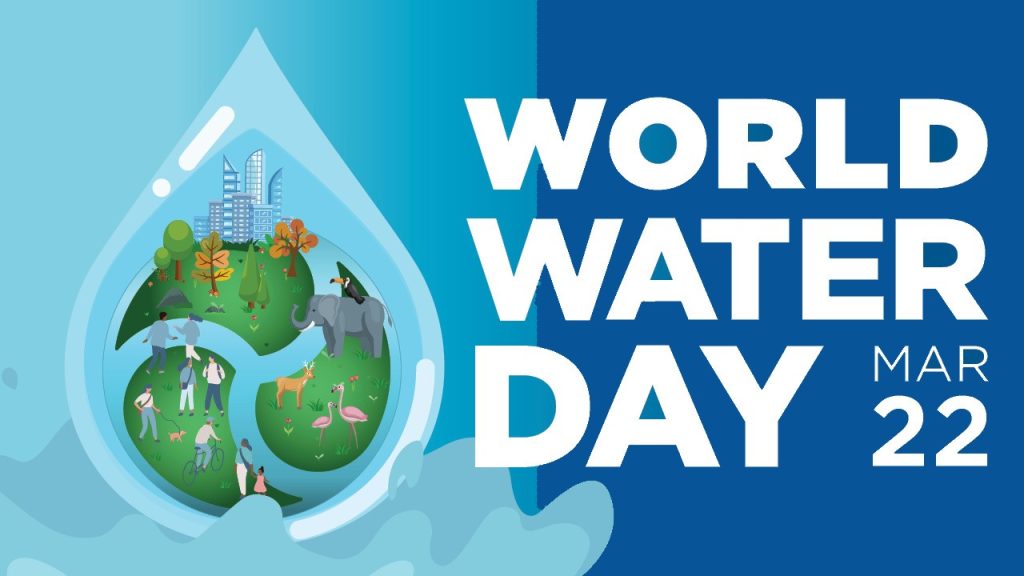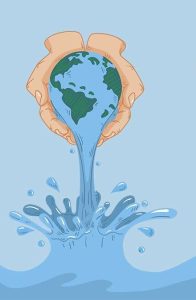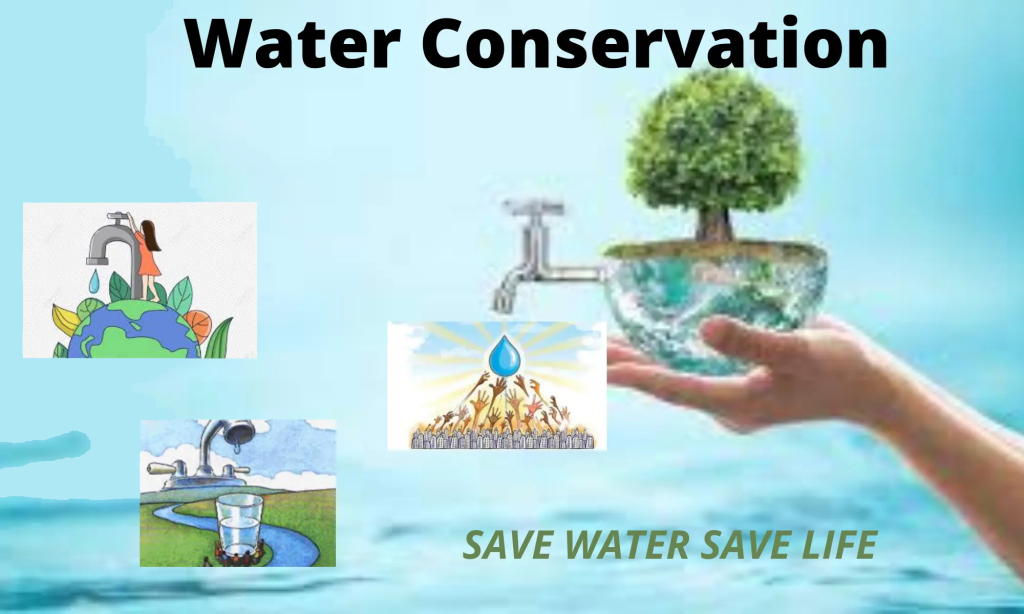 World Water Day is an annual event held on March 22 to raise awareness about the value of water and its sustainable management. This day is not only for reflection but also for taking action to conserve and safeguard our water resources. The day underlines the importance of water in our lives and encourages everyone to take action for water conservation. It is a global effort to encourage sustainable practices that ensure everyone has access to clean water now and in the future.
World Water Day is an annual event held on March 22 to raise awareness about the value of water and its sustainable management. This day is not only for reflection but also for taking action to conserve and safeguard our water resources. The day underlines the importance of water in our lives and encourages everyone to take action for water conservation. It is a global effort to encourage sustainable practices that ensure everyone has access to clean water now and in the future.
Read on to understand what some corporations are doing to conserve and save this precious natural resource.
 Shaina Ganapathy
Shaina Ganapathy
Head – Community Outreach Initiatives
Embassy Group
Water has always been a precious resource, but in recent years, the world has been facing a water crisis due to a combination of factors, including climate change, urbanisation, and population growth. As per a report by UNESCO, globally, 2 billion individuals, representing 26 per cent of the global population, lack access to safe drinking water, while an alarming 3.6 billion people, or 46 per cent, do not have access to adequately managed sanitation facilities.
 With World Water Day around the corner, it’s time to take stock of the potentially alarming water situation and strategize for improvement. As much as awareness about water conservation has increased over the last few years, there is still a long way to go. Therefore, Embassy Group has implemented a variety of green practices that result in positive change, such as:
With World Water Day around the corner, it’s time to take stock of the potentially alarming water situation and strategize for improvement. As much as awareness about water conservation has increased over the last few years, there is still a long way to go. Therefore, Embassy Group has implemented a variety of green practices that result in positive change, such as:
- Within our owned business parks, our services vertical has taken certain steps towards water conservation, including ensuring that approximately 50 per cent of the total water used for secondary purposes undergoes recycling through sewage treatment plant (STP) processes.
- Additionally, low-flow plumbing fixtures, including flow restrictors, low-flow taps, and aerators, have been installed throughout the facilities. Sensor-based fixtures have been deployed in certain areas to enhance efficiency further. Furthermore, we have upgraded our water treatment units with advanced technologies, such as mechanical filters, to decrease water waste.
- Embassy, in partnership with The Anonymous Indian Charitable Trust, has been working in the Bettahalasuru Panchayat in North Bengaluru since 2016 to address the issues of irresponsible disposal of waste and the depletion of soil and water. Under the EcoGram programme, the partners have made efforts towards water stewardship. EcoGram continues to rejuvenate local lakes (Thanisandra and Thimmasandra in North Bengaluru) through augmented bunds, water quality checks, and optimised functioning of stormwater drains. Local biodiversity is of the utmost importance, and efforts to increase biodiversity will continue. We also drive low-cost turn-key solutions for water recycling, rainwater harvesting, and water conservation.
At Embassy Group, we strongly believe that collaboration is the key to revitalising our environment and transitioning to a green economy for all. As responsible corporates, let us renew our commitment to preserving and protecting this vital resource for future generations. Together, let’s strive for a world where every drop counts and every person has access to clean and safe water. Our actions today will shape the water story of tomorrow. Let’s make it a tale of sustainability, equity, and abundance for all.
 PepsiCo India’s Vision to Champion Water Sustainability
PepsiCo India’s Vision to Champion Water Sustainability
Yashika Singh
Head – Corporate Affairs Communication and Sustainability
PepsiCo India
“Driven by our vision of PepsiCo Positive, we are making significant strides towards water stewardship and sustainability at PepsiCo India. As we celebrate World Water Day, we take pride in our continuous efforts that extend beyond conservation to actively replenishing water sources, adopting sustainable practices, and empowering communities. Through initiatives like the Sustainable Water Resource Development and Management and Safe Water Access programs, in collaboration with Alternative Development Initiatives, WaterAid and Pandit Jagat Ram Memorial FORCE Trust respectively, we’ve positively impacted lives and ecosystems across regions like Punjab, Maharashtra, West Bengal and Uttar Pradesh. As we march towards our goal of becoming net water positive by 2030, we remain steadfast in our mission, touching the lives of communities, wherever we go.”
Guided by PepsiCo Positive, PepsiCo India aims to support water security for its business, natural ecosystems, and local communities by improving water use efficiency in operations, providing safe water access to people, replenishing more than 100 per cent of the water used and adopting the Alliance for Water Stewardship (AWS) standard in high water-risk areas where PepsiCo operates.
With a vision to become net water-positive by 2030, PepsiCo India’s water initiatives aim to drive positive change and exemplify the company’s commitment to sustainability, environmental responsibility, and community empowerment. Keeping these efforts in mind, PepsiCo India along with its partners has undertaken the following initiatives across locations in the country.
 Sustainable Water Resource Development and Management (SWRDM) Programme
Sustainable Water Resource Development and Management (SWRDM) Programme
- Developed in collaboration with Alternative Development Initiatives (ADI), the SWRDM programme focuses on enabling groundwater recharge by employing geo-hydrological considerations at the watershed level.
- By intensifying groundwater recharge initiatives annually in regions like Sangrur (Punjab), Pune (Maharashtra), and Mathura (Uttar Pradesh), PepsiCo India has reinforced its commitment to environmental stewardship. Notably, the SWRDM programme has:
- positively impacted over 70,000 individuals and,
- created the potential for 1,000 million litres of groundwater recharge through the construction of 33 rainwater harvesting structures
Safe Water Access Programme
- PepsiCo Foundation is committed to providing Safe Water Access to over 100 million people worldwide by 2030, out of which 68 million have already been covered through various partnerships with NGOs and multilateral agencies. Out of these 27 million beneficiaries come from India, through partnerships with organisations like Water Aid.
- As part of the programme:
- PepsiCo Foundation has facilitated well restoration, rainwater harvesting in schools and piped water supply systems to homes, benefitting over 200,000 people, through a multi-year investment in South India (Palakkad, Nelamangala and Sri City).
- Positively impacted the lives of 200,000 farmers, families, and communities across Maharashtra and West Bengal through the partnership with WaterAid.
- Furthermore, the partnership with Pandit Jagat Ram Memorial FORCE Trust aims to impact 20,000 people and 3,000 children in Uttar Pradesh.
Fryer Vapour to Water Project
- PepsiCo India has embarked on an innovative project- the ‘Fryer Vapour to Water’.
- About 80 per cent of water inherent to the potatoes is released as vapour during chips frying through the stack of the fryer. The Fryer Vapour to Water treatment technology captures and condenses the steam and removes fats, oils, and grease. Water generated through this process is used for PC processing, and it can be reused to wash, peel, or slice new potatoes as they arrive from the farm.
- The project aims to recover over 50 per cent of water used in potato chip manufacturing plants in West Bengal and Uttar Pradesh.
 Biswanath Sinha
Biswanath Sinha
Director – Policy & Technical Support
WaterAid India
“Jal Shakti Minister Gajendra Singh Shekhawat recently announced that about 75 per cent of the country’s rural households have been provided with tap water connections so far. While milestones on the Jal Jeevan Mission are applaudable, alongside bricks and mortar, let us not overlook the power of knowledge. Educating individuals on water conservation, recharge, operation and maintenance (O&M) of the resources is not just a necessity; it’s a lifeline. In uncertain times, this awareness becomes our greatest asset, especially in empowering rural communities to sustainably manage their WASH resources without any dependency. Identifying influential groups/persons in the community, equipping them with suitable  knowledge, building their capacities, and making them accountable for the operation and maintenance of hardware infrastructure of the piped water supply systems can go a long way. Let us invest in awareness as much as we invest in infrastructure, for it is within this holistic approach that the foundation for lasting peace and prosperity is laid. Only by ensuring access to safe and adequate water and sanitation for all, even amidst adversity, can we truly attest to have built a developed and inclusive India.”
knowledge, building their capacities, and making them accountable for the operation and maintenance of hardware infrastructure of the piped water supply systems can go a long way. Let us invest in awareness as much as we invest in infrastructure, for it is within this holistic approach that the foundation for lasting peace and prosperity is laid. Only by ensuring access to safe and adequate water and sanitation for all, even amidst adversity, can we truly attest to have built a developed and inclusive India.”

